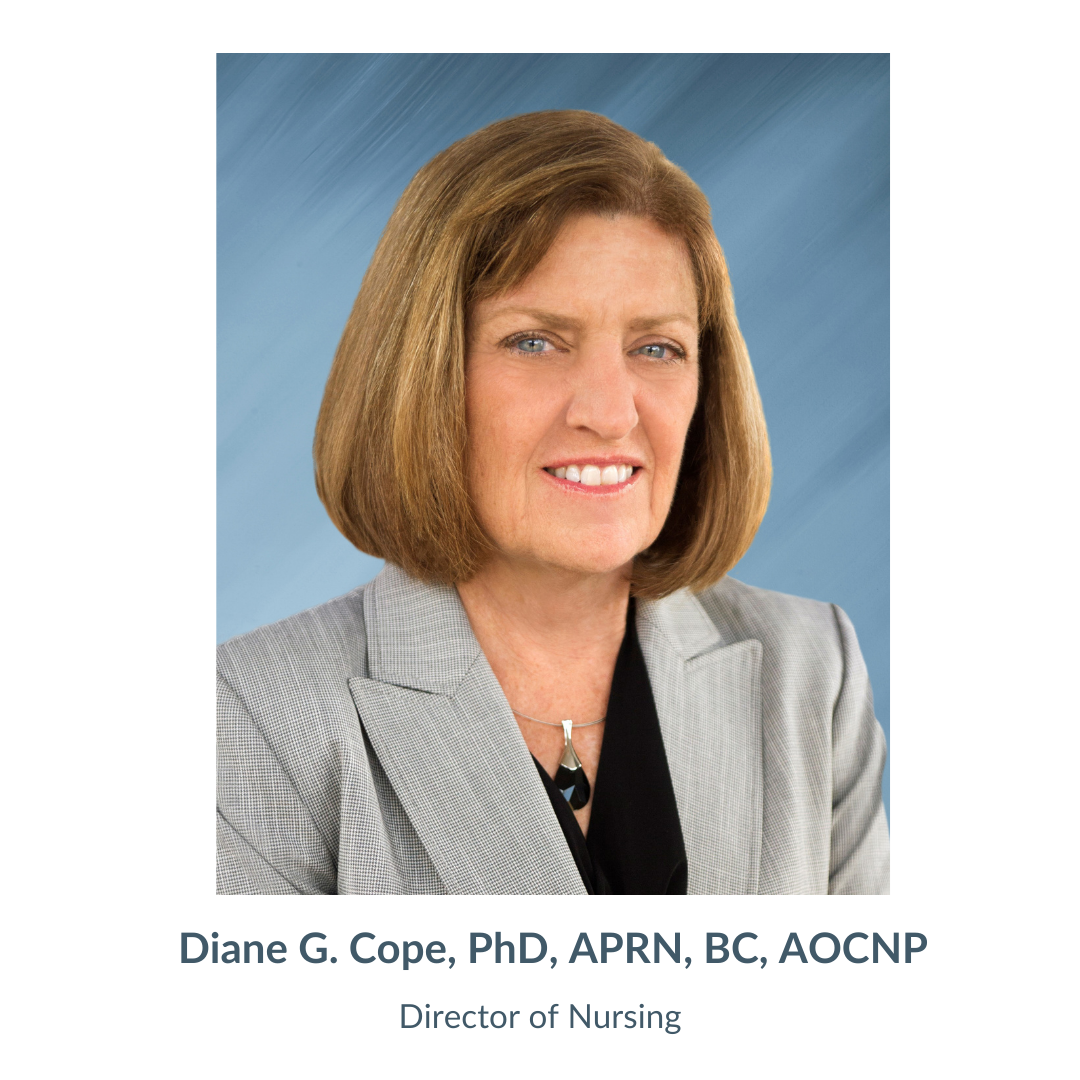Diane Cope, PhD, APRN, BC, AOCNP Co-Authors Study on Interventions for Fear of Cancer Progression in Advanced Cancer
Fort Myers, Fla., Dec. 23, 2020 — Florida Cancer Specialists & Research Institute (FCS) Director of Nursing Diane G. Cope, PhD, APRN, BC, AOCNP is co-author of an article that focuses on the results of a feasibility study whose purpose was to “assess the feasibility, acceptability and preliminary effects of a nurse-led intervention for managing fear of cancer progression in advanced cancer patients.” Entitled “A nurse-led intervention for fear of cancer progression in advanced cancer: A pilot feasibility study,” the article was published in the December 2020 issue of the European Journal of Oncology Nursing.
According to the study, which involved patients with Stage III or IV gynecologic or lung cancer, “Approximately 49% of cancer survivors overall and up to 70% of patients with advanced cancer experience moderate to high levels of fear of cancer progression/recurrence/(FOP).” Patients, especially those with advanced cancers, may have disturbing thoughts that can result in coping behaviors that are unhelpful and cause difficulty making future plans. The study points out that some degree of FOP is to be expected; however, excessive levels of fear and concern about cancer progressing and/or returning can interfere with quality of life and even some health care costs, caused by unnecessary appointments.

Although some psychological interventions have been developed to treat FOP, most have been used in patients treated with curative intent. Additionally, existing interventions are resource intensive and administered by qualified psychologists, who can be difficult to access. Conversely, the study by Dr. Cope and her co-authors described an interdisciplinary, nurse-led intervention that utilized mixed methods, including an in-person session with follow-up Zoom conferences.
The study concluded that, while the intervention required a significant commitment of time, “Improvements in FOP and secondary outcomes are promising but require further testing. The qualitative data support these findings and provide insight on benefits, challenges, and suggestions for refinement.”
To access the full-study, visit here.
